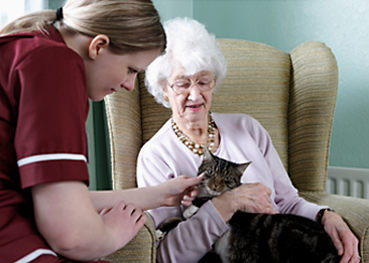
Providers and policy experts are supporting legislation that would reinstate CNA training programs for facilities that have received civil monetary penalties of more than $10,000.
Sens. Mark Warner (D-VA) and Tim Scott (R-SC) introduced the Ensuring Seniors Access to Quality Care Act (S.2993) last Thursday. The legislation has been referred to the Senate Finance committee.
The proposed bill calls for increasing nursing home operator access to the National Practitioner Data Bank, a national criminal background check system. It also calls for the reinstatement of in-house CNA training programs for nursing facilities if the following occur: they have corrected the deficiency that caused it to be penalized; the deficiency didn’t result in an immediate risk to patient safety; and if the facility has not received a repeat deficiency related to direct patient harm in the preceding two-year period.
The House in September introduced similar legislation to reinstate training programs. The legislation was referred to the House Ways and Means and Energy and Commerce committees. No other action has been taken since.
“Having started my career in long term care as a nursing assistant, I know how critical they [training programs] are to providing direct care to thousands of patients and residents every day. Ending the CNA training lockout will have a tremendously positive impact on our ability to train more caregivers to work in our nursing homes,” said David Tucker, chairman of the Virginia Health Care Association-Virginia Center for Assisted Living, and president and COO of Commonwealth Care of Roanoke.
Melissa Andrews, president and CEO of LeadingAge Virginia, applauded the legislation. “This ‘CNA Training Lockout’ runs counter to a nursing home’s ability to provide the highest quality of care and we appreciate the senators for introducing legislation to overcome this barrier,” Andrews said.

Meanwhile, Harvard professor and healthcare policy expert David Grabowski, Ph.D., called Thursday’s bill a “step in the right direction,” but that it’s “far from sufficient.” He said more needs to be done to “take on the big issues around the hiring and retention of nursing home direct care staff.”
“First, Medicaid is the primary payer of nursing home services. Medicaid payment rates are typically 70 – 80 [percent] of private-pay prices. These low payment rates do not allow nursing homes to hire and retain quality staff,” Grabowski told McKnight’s.
“Indeed, low staffing levels and high turnover are rampant in many US nursing homes. Although many advocates are worried that nursing homes will not use additional payments for staff, some states have implemented ‘wage pass through’ programs that directly tie Medicaid rate increases to spending on staff,” he explained.
Grabowski added that “quality regulations in the nursing home sector are extensive but oversight is often inconsistent.”
“Many quality of care problems develop due to inadequate staffing but these issues are rarely enforced and punished. CMS has been slowly rolling back enforcement and oversight of some nursing home rules. This is a mistake,” he said.
He added that consumers should be provided more information on nursing home staffing levels.
“CMS took a big step forward with requiring the collection of payroll-based staffing data. This information is now available on the Nursing Home Compare website,” he said. “I would encourage CMS to enhance the staffing measures available on the website and identify ways to encourage greater use of the website by residents and their families.”





